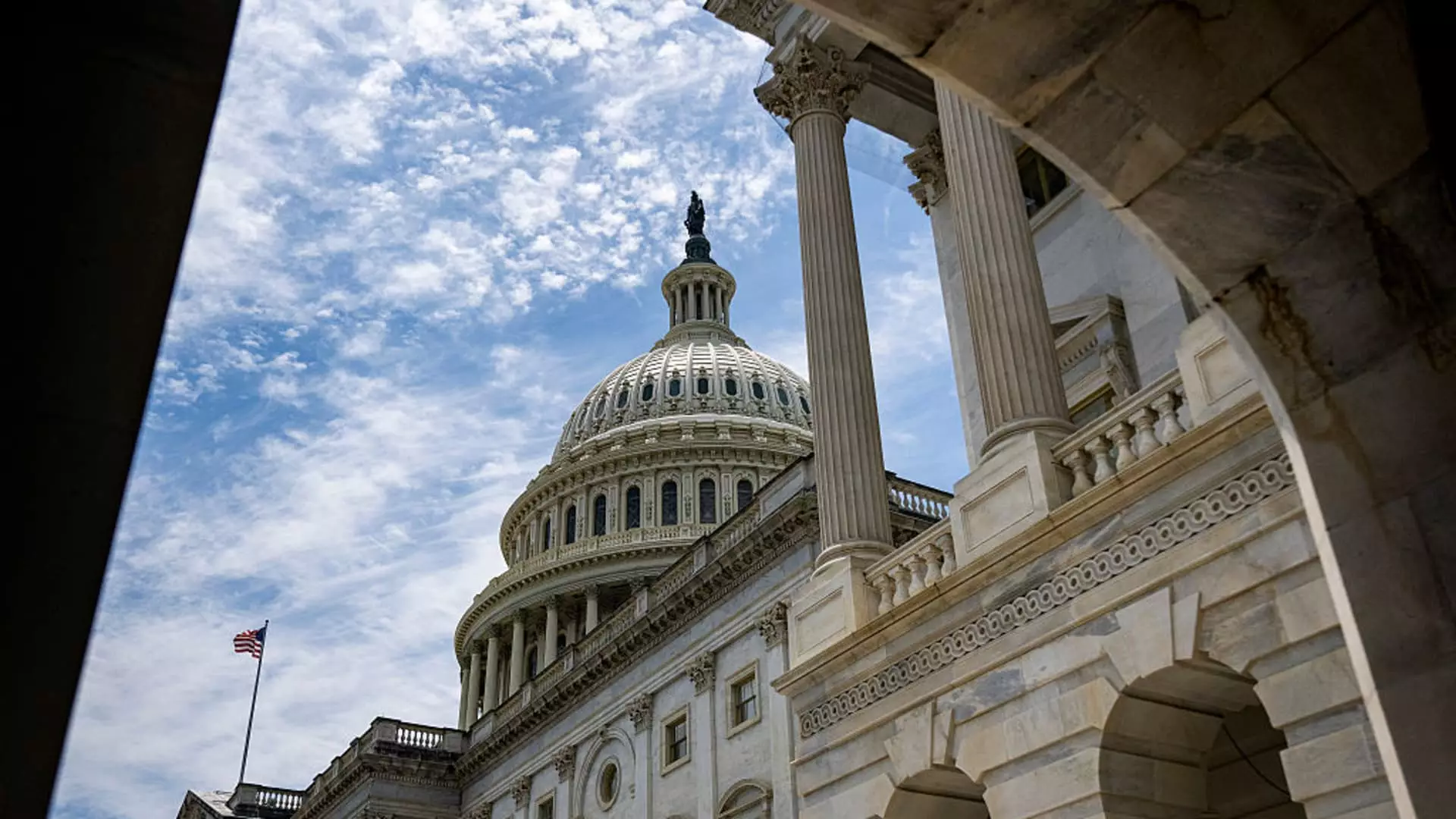In the flawed fabric of current fiscal policymaking, it is disturbingly clear that the wealthy continue to reap disproportionate benefits under the guise of economic progress. Recent legislative proposals, particularly President Trump’s so-called “big beautiful bill,” reveal a troubling pattern: the privileged elite are set to gain even more from tax reforms that favor high-income earners at the expense of the broader populace. This push for permanent extensions of the 2017 tax cuts systematically deepens economic divides, reinforcing a system where the wealthy’s gains come at the cost of societal cohesion and fairness.
The updated legislation promises millionaires an average after-tax income boost of approximately 3%, outpacing the modest 2.5% increase for the average taxpayer. This differential, amounting to roughly $75,000 more in their wallets annually by 2026, exemplifies an obfuscation of fairness. In essence, the bill consolidates existing inequalities under a veneer of economic growth, while ordinary Americans—those working paycheck to paycheck—are left further behind as their tax burdens remain comparatively burdensome or unchanged. This stark disparity not only undermines the principle of equitable taxation but also risks fueling social unrest and disillusionment among middle and lower-income classes.
The Deception of “Tax Relief” for the Masses
What is most alarming is the deception inherent in framing these policies as broadly beneficial. The bill’s expansion of deductions, such as the SALT cap increase, seems superficially advantageous but primarily benefits affluent residents of high-tax states. The lifting of the SALT deduction limit from $10,000 to $40,000 might sound generous, but in reality, it entrenches privilege—most notably by favoring the wealthy in blue states who can leverage these deductions to shield larger sums of income from taxation.
Concurrently, loopholes like the pass-through entity tax further distort fairness. These workarounds allow high-income pass-through business owners—such as lawyers, doctors, and financiers—to sidestep caps and claim unlimited deductions, effectively enriching the already privileged. This opens the door to systemic exploitation, where the guise of supporting small businesses masks a targeted tax break for the ultra-rich. It is an unconscionable gambit that normalizes tax avoidance tactics serving the interests of the powerful rather than fostering genuine economic growth or fairness.
The Distortions of Small Business Incentives and Wealth Accumulation
The bill’s modifications to the qualified small business stock (QSBS) provisions exemplify how policy is increasingly crafted to bolster the coffers of billionaires. Raising the asset cap from $50 million to $75 million and increasing capital gains exclusions dramatically benefit substantial investors looking to capitalize on the flourishing startup ecosystem. Such incentives, while marketed as supporting small businesses, are essentially tailored for the wealthiest, offering them a tax haven that encourages massive wealth accumulation with minimal contribution to societal good.
Consider the sheer scale of potential tax savings—up to hundreds of millions of dollars—available for wealthy investors who can channel investments into a handful of select ventures. These policies manipulate the tax code to prioritize wealth preservation and growth over equitable economic participation. Instead of nurturing genuine small business growth across diverse communities, these provisions subtly entrench income concentration among the upper echelons, widening the chasm of economic inequality.
Estate Tax: A Perpetual Shield for the Wealthy
The act’s commitment to maintaining the estate tax demonstrates how entrenched fiscal policies serve to shield inherited wealth. Increasing the exemption to $15 million per estate (or $30 million per couple) and indexing it for inflation effectively makes the estate tax a relic of the past for America’s most affluent families. This ensures that wealth remains within select dynasties, perpetuating economic privilege across generations while the middle class bears the brunt of tax burdens elsewhere.
By eroding the estate tax’s power, the bill diminishes a vital redistribution mechanism that could help address wealth disparities. The wealthy’s estate plans become more predictable, secure, and insulated from societal responsibilities, which should ironically be a moral imperative of fiscal policy in a society claiming to value fairness.
The Broken Promise of Charitable Giving
Lastly, the bill’s approach to charitable deductions exemplifies how the system subtly penalizes generosity among the wealthy. While it offers a modest boost to middle-income donors by allowing deductions even when claiming the standard deduction, it simultaneously imposes stricter caps and floors on high-income charitable contributions. These measures effectively curb the philanthropic capacity of America’s most generous donors, who have historically shouldered a significant share of charitable efforts.
This shift is driven by an undeniable bias: policies are skewed to favor a narrow and privileged segment of society while de-incentivizing the kind of largess that could tangibly benefit public welfare. It is no coincidence that the very individuals and entities most capable of significant charitable impact are being subtly penalized, further cementing an unequal cycle of wealth and influence.
—
In sum, these legislative moves are less about fostering a fair, inclusive economy and more about consolidating power within the upper classes. A truly progressive approach would recognize that fiscal policies should serve the many—not just the few—and strive to create a balanced, equitable system where opportunity is accessible to all, not just the wealthy elite.

